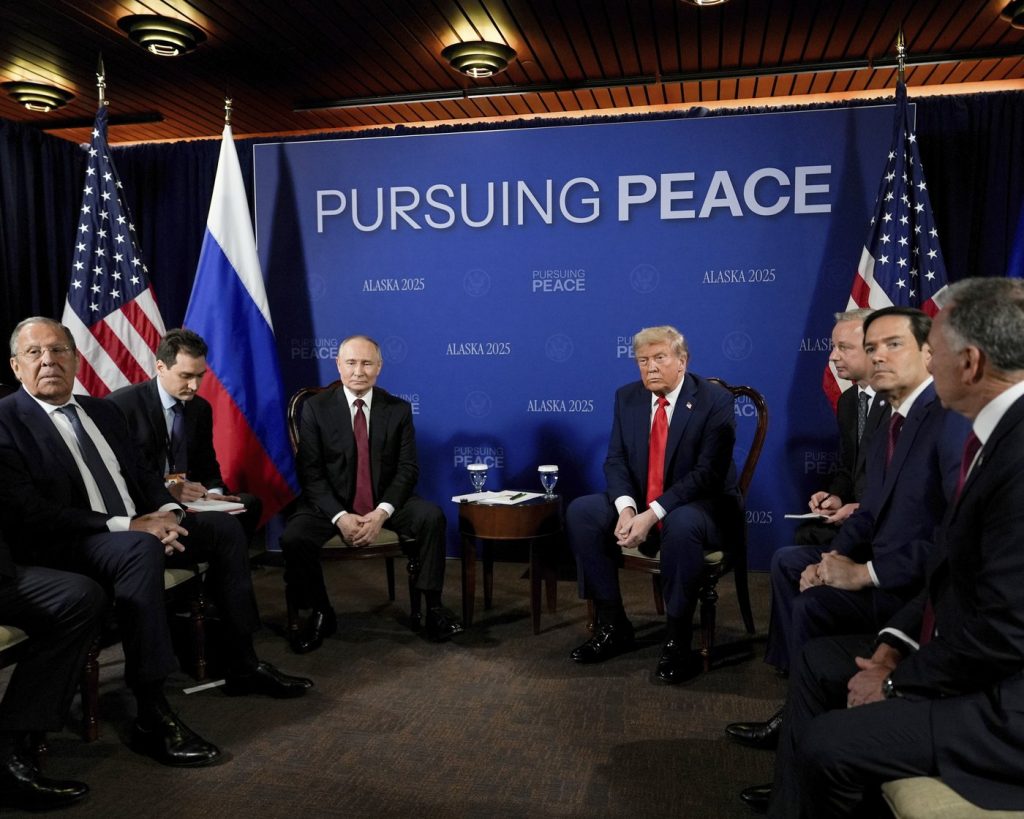NEW YORK (AP) — In a significant development regarding the ongoing conflict in Ukraine, Russian President Vladimir Putin and U.S. President Donald Trump reached an agreement during their summit held at Joint Base Elmendorf-Richardson in Alaska on Friday, August 15, 2025. The agreement allows the United States and its European allies to extend a security guarantee to Ukraine similar to NATO's Article 5 collective defense clause. This move has been described as a potential pathway to concluding the 3 1/2-year war in Ukraine, according to special U.S. envoy Steve Witkoff.
Witkoff spoke to CNN's "State of the Union," detailing how the summit yielded a historic concession from the Russians: the United States could offer Article 5-like protection for Ukraine. This protection is crucial for Ukraine, which aspires to NATO membership, and Witkoff emphasized that it marked the first instance of Russia agreeing to such terms, calling them "game-changing." Article 5, integral to NATO, ensures that an armed attack against one member is viewed as an attack against all.
During the discussions, there was a notable shift in Putin's stance, as he agreed to a provision that Russia would not intervene in other European countries or violate their sovereignty. Witkoff's remarks suggest that this agreement represents a significant move away from Putin's historical reluctance regarding Ukraine's potential NATO membership, although details on implementation remain sparse.
European Commission President Ursula von der Leyen responded positively to the summit's outcome during a joint news conference in Brussels alongside Ukrainian President Volodymyr Zelenskyy. She expressed support for Trump’s willingness to engage in Article 5-like security guarantees for Ukraine, claiming that the "Coalition of the willing," which includes the European Union, stands ready to contribute. Zelenskyy acknowledged the U.S. signals of support but noted the lack of specific details surrounding the arrangements and responsibilities of both the U.S. and Europe in this initiative.
Witkoff defended Trump's strategy to shift focus from seeking an immediate ceasefire to working towards a peace deal, citing the progress made in discussions. He indicated that key topics were addressed, with the U.S. delegation feeling optimistic about potential agreements, although considerable disagreements remain. Rubio, who alongside Witkoff attended the talks, discussed the challenges that lie ahead, suggesting that without Ukraine's presence at the summit, a truce would be difficult to attain.
Rubio also highlighted the potential consequences should a peace agreement not be reached, reinforcing that efforts towards a resolution should continue. He emphasized the need for dialogue rather than coercive measures like imposing new sanctions on Russia, stating that such actions could hinder progress. The delegation identified areas of possible agreement but acknowledged that “big areas of disagreement” still exist, indicating a complex road ahead toward peace.
The upcoming meeting in the White House with Zelenskyy and European leaders was anticipated after their discussions with Trump. Witkoff remained hopeful about further clarifying key issues, particularly regarding potential land swaps, which he noted could not be addressed during the meeting with Putin. The expectation is that these important discussions may pave the way for a comprehensive peace agreement.











